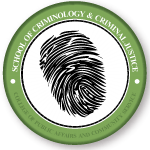Document Type
Article
Publication Date
2016
Publication Title
Health and Justice
Volume
4
Issue
7
Abstract
Background: In recent years, jurisdictions have recognized the strain placed on limited existing resources by criminal offenders with mental illness who frequently cycle through local jail facilities. In response, many locales have developed and implemented specialized programs to more effectively and efficiently manage these offenders, particularly the process of assigning defense attorneys to these often indigent defendants.
Methods: The current study examined the impact of an Indigent Defense Counsel (IDC) program designed to provide specially trained defense attorneys, and enhanced case management services to 257 indigent jail inmates with a qualifying, major mental health diagnosis (e.g., major depression). These offenders were compared to 117 similar offenders who did not receive these services, on both their length of stay in the jail, and their likelihood of recidivism after release to the community.
Results: Survival analyses revealed that program participants spent about 17 fewer days in jail; however, recidivism rates between groups, measured as return to the same county jail or as statewide re-arrest, did not differ.
Conclusions: These results suggest that defendants with mental illness can potentially be managed effectively in the community, with little added risk to public safety and at potential savings in jail bed days/costs. Implications for the processing of indigent criminal defendants with mental illness are presented.
Recommended Citation
Bouffard, Jeff; Berger, Elizabeth; and Armstrong, Gaylene, "The effectiveness of specialized legal counsel and case management services for indigent offenders with mental illness" (2016). Criminology and Criminal Justice Faculty Publications. 30.
https://digitalcommons.unomaha.edu/criminaljusticefacpub/30


Comments
© 2016 Bouffard et al. Open Access This article is distributed under the terms of the Creative Commons Attribution 4.0 International License (http://creativecommons.org/licenses/by/4.0/), which permits unrestricted use, distribution, and reproduction in any medium, provided you give appropriate credit to the original author(s) and the source, provide a link to the Creative Commons license, and indicate if changes were made.